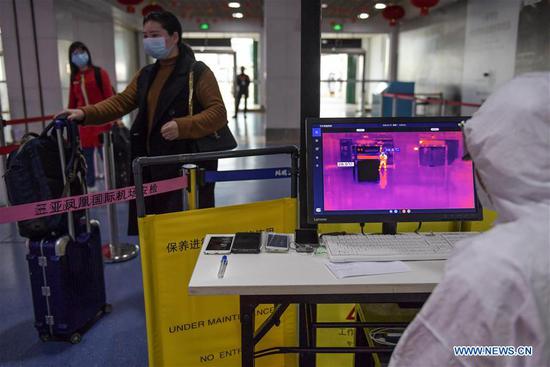Amid the expanding scale of bonds with negative interest rates worldwide, China's bond market has made sustained efforts to expand its global presence and facilitate the influx of foreign capital.
The total value of Chinese bonds held by overseas institutional investors topped 2 trillion yuan (about 291 billion U.S. dollars) in 2019.
Overseas institutional investors purchased 3.2 trillion yuan of Chinese bonds in 2019 and sold 2.1 trillion yuan, resulting in net buying of 1.1 trillion yuan, according to the China Foreign Exchange Trading Center.
By the end of 2019, 2,608 overseas institutional investors had invested in the Chinese interbank bond market. Overseas institutions held as much as 2.19 trillion yuan of RMB bonds, up 457.8 billion yuan from a year earlier.
Foreign investors have increased their holdings of Chinese bonds for 13 consecutive months since December 2018.
Among Chinese bonds acquired by foreign institutions, government bonds are the most sought-after. At the end of 2019, foreign investors held as much as 1.31 trillion yuan of government bonds, accounting for 69.74 percent of Chinese bonds under custody purchased by foreign capital.
Representing the credit of a country, government bonds come with low risks, thus being an important choice for international investment, said Zong Liang, chief researcher of the Bank of China.
Why are Chinese bonds popular in the international bond market? Attractive interest margin, steadier RMB exchange rate, a slew of opening-up policies and smoother entry channels have all made China's bond market a popular destination for investment.
On the one hand, with high yield rates, Chinese bonds have appealed to global investors, on the other hand, China has been open to foreign investors, Zong said.
A series of opening-up measures have facilitated the influx of foreign capital.
Three of the 11 opening-up measures for the financial market announced by the State Council's Financial Stability and Development Committee in July 2019 were directly related to the bond market.
International investors are bringing in capital. In April 2019, Bloomberg announced it would include Chinese bonds into the Bloomberg Barclays Global Aggregate Index. In September 2019, J.P. Morgan announced it would include Chinese government bonds in its widely tracked Government Bond Index Emerging Markets (GBI-EM) suite from February 2020.
The inclusion of Chinese bonds into global indexes will encourage the inflow of global capital into the Chinese market on a large scale, Zong said.
China will not stop opening up its financial market in 2020.
To further open up the financial sector, the Ministry of Finance (MOF) in January announced it would relax restrictions over the qualifications of wholly foreign-funded banks, joint venture banks and branches of foreign banks in joining in the underwriting groups of local government bonds.
The approach can help expand bond issuance channels, enable further opening-up of the government bond market and RMB internationalization and enhance the global visibility of the Chinese bond market, according to the MOF.
As the Chinese economy scales up, the layout of financial opening-up is becoming mature and the Chinese bond market has become a major destination for global capital allocation and will remain a hot spot for global investment in the near future, said Li Yang, chairman of the National Institution for Finance and Development.


















































